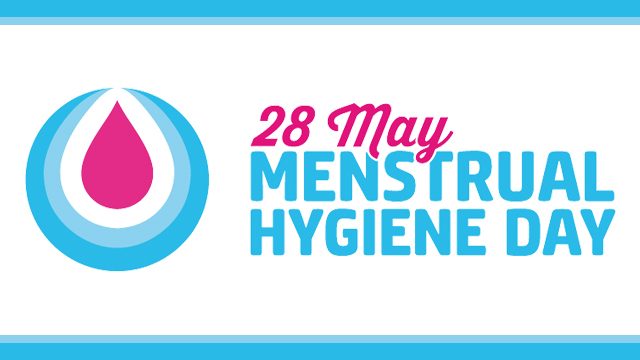SUMMARY
This is AI generated summarization, which may have errors. For context, always refer to the full article.

This is an announcement from WASH United.
MANILA, Philippines – “Let’s end the hesitation around menstruation” are the words that will be heard across the world on the second annual Menstrual Hygiene Day on May 28.
Menstrual Hygiene Day (MH Day) is an awareness platform that works year-round to break taboos and raise awareness about the importance of good menstrual hygiene management (MHM) for women and adolescent girls. Initiated by WASH United in 2014, the day has garnered the support of over 230 global partners that are unified in their commitment to make good menstrual health and hygiene a priority worldwide.
Despite the fact that menstruation is a healthy biological process, in many places all over the world it is approached with hesitance and misinformation because of deeply–rooted cultural taboos. The silence around menstruation limits women’s and adolescent girls’ access to relevant and important information about their bodies, directly affecting their health, education and human rights:
-
In many traditional Hindu homes in India, girls and women face restrictive taboos around menstruation, such as being denied entry to the temple and the kitchen.
-
In many parts of sub-Saharan Africa, girls can miss up to 5 days of school a month or drop out entirely due to insufficient access to water, sanitation and hygiene (WASH) facilities and sanitary supplies.
-
Despite their widespread availability, many low-income and/or homeless girls and women in the inner cities of the US simply cannot afford sanitary supplies.
On the first Menstrual Hygiene Day in 2014, events took place all over the world, with politicians and representatives from health, education and gender ministries in attendance.
This year, the focus will be to “end the hesitation around menstruation” and challenge societal norms that claim that periods are shameful or dirty. “Breaking down global taboos so that we can discuss this natural bodily function has positive impacts beyond a woman’s reproductive health,’’ says Dr Dani Barrington, WASH specialist and strategic advisor for MH Day in Australia, “it is of vital importance to her dignity.’’
For partners working in developing countries, the day is not only an opportunity to raise awareness, but also to strengthen government accountability around MHM. In Kenya, the Ministry of Health is developing a national MHM strategy that is set to launch on Menstrual Hygiene Day 2015.
This is a monumental step that Alfred Muli, MH Day national coordinator for Kenya and partners working with the Ministry are particularly excited about: “The development of this strategy is extremely important because it shows that the government is committed to making sure that MHM materials are accessible and affordable. This is great because this is something that MH Day partners here have been working really hard year-round to push.”
Beyond Kenya, to help ensure that the collective voice of MH Day is heard loud and clear, other partner coalitions are forming to engage governments and coordinate stakeholders.
“The continuous support shown by the government, civil society organizations, development partners, donor agencies, and media in Nepal is really encouraging,” remarks Pema Lhaki, deputy executive director of the Nepal Fertility Care Center and MH Day National Coordinator for Nepal.
“But most of all, I am encouraged every time I say the word ‘menstruation’ to a woman or girl in Nepal. The smile that appears on their face is a smile that starts the conversation about something they have never really talked about before,” Lhaki said.
To help break the silence and lend your voice to the global movement, use #MenstruationMatters on social media. For more information about the advocacy, check out related materials available online at www.menstrualhygieneday.org. – Rappler.com
Add a comment
How does this make you feel?
There are no comments yet. Add your comment to start the conversation.